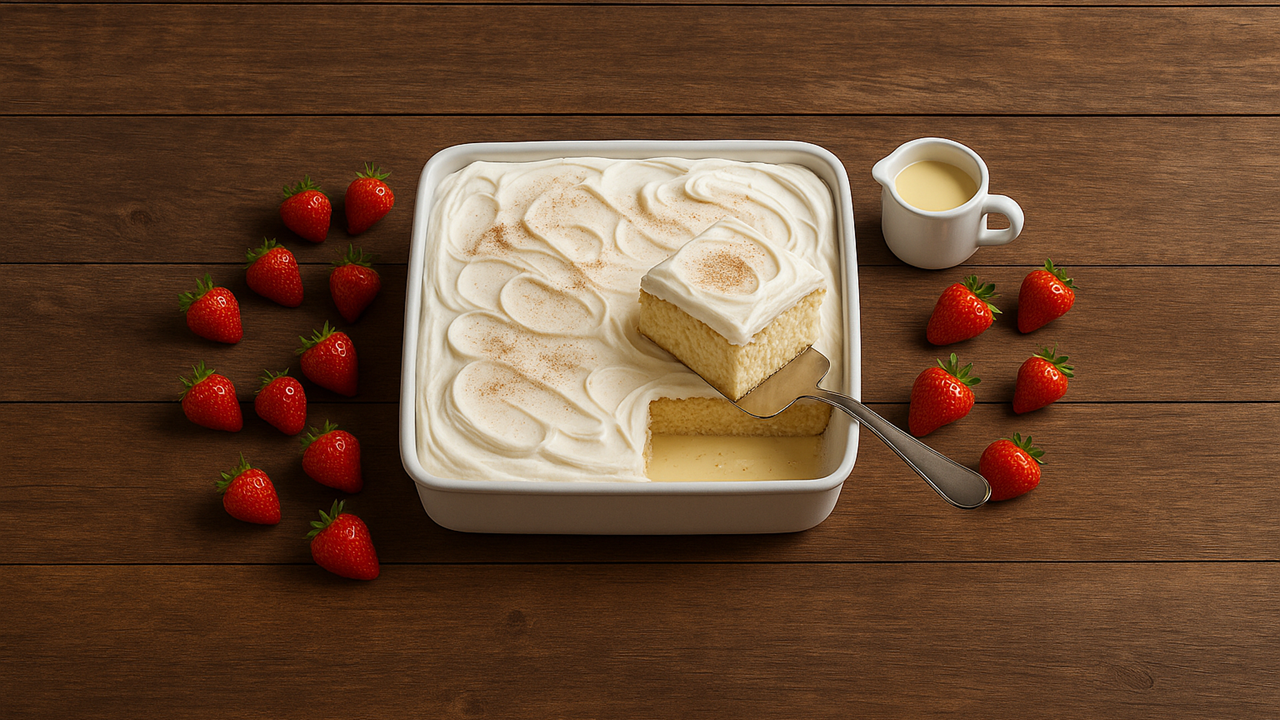Recipes: Authentic Tres Leches Cake from Scratch
Tres Leches Cake – literally “three milks cake” – is a sponge dessert that traces its roots to the early‑twentieth‑century boom in canned dairy across Central America. Food historians point to Nicaragua as the earliest stronghold, where evaporated milk and sweetened condensed milk arrived on trading ships and quickly appeared in promotional recipes printed on the cans. Local bakers soaked airy sponge cakes in a blend of these new products plus fresh cream, creating a dessert that was unbelievably moist yet still light on the palate.
The idea of soaking cakes in syrup was hardly new. Spanish colonists brought recipes for sherry‑soaked puddings, and older European trifles layered cream with sponge. Latin American cooks adapted those techniques, replacing wine with dairy to suit local tastes and to showcase the “modern” convenience of canned milk. By the 1940s Nestlé and Borden were marketing tres leches as a glamorous party sweet. As the recipe traveled through Mexico, Cuba, Puerto Rico, and beyond, each country added its own touches yet kept the signature trio of milks.
What makes the cake special is the interplay of textures and flavors. The base is a fat‑free sponge that bakes up tall, ready to act like a thirsty sponge. Once cooled, it is pierced and bathed in that silky mixture of evaporated milk, sweetened condensed milk, and heavy cream. Hours in the refrigerator allow every crumb to absorb the sweet dairy bath, so each slice oozes a little milk when cut but never feels soggy. A fluffy whipped‑cream crown adds freshness that balances the rich interior.
Today tres leches appears at birthdays, graduations, and holiday tables across the Americas. Purists stick to the classic vanilla sponge, while modern bakers might swap in coconut milk, drizzle dulce de leche, or scatter fresh fruit. In my kitchen I begin with the traditional formula, then share a few simple variations so you can customize while honoring the cake’s humble yet storied heritage.
Ingredients
Sponge Cake
Three‑Milks Soak
1 can (12 oz) evaporated milk
1 cup sweetened condensed milk – about 10 oz
1 cup heavy cream – or whole milk for lighter soak
1 teaspoon vanilla extract
1 tablespoon dark rum – optional traditional accent
Whipped‑Cream Topping
1 cup cold heavy whipping cream
2 tablespoons granulated or powdered sugar
½ teaspoon vanilla extract
Optional Twists
Coconut swap – replace heavy cream in soak with 1 cup full‑fat coconut milk, top with toasted coconut
Fresh fruit – sliced strawberries, mango, or mixed berries for garnish
Dulce de leche drizzle – warm slightly and ribbon over whipped cream
Light cinnamon dust – classic finish in many Latin kitchens
Instructions
Prep oven and pan
Heat oven to 350 F (175 C).
Grease a 9 × 13 in baking dish. Optionally line base with parchment for easy release.
Beat egg yolks
In large bowl whisk yolks with ¾ cup sugar about 5 minutes until thick and pale.
Stir in vanilla and whole milk.
Combine dry ingredients
Sift flour with baking powder.
Fold dry mix into yolk batter just until no streaks remain.
Whip egg whites
With clean beaters whip whites on medium speed until foamy.
Add cream of tartar. Increase speed, then sprinkle in remaining ¼ cup sugar.
Continue whipping to glossy stiff peaks.
Lighten batter
Gently fold one‑third of whites into yolk batter to loosen.
Fold in remaining whites in two additions, stopping as soon as batter is uniform.
Bake sponge
Pour batter into prepared pan – spread level.
Bake 25–30 minutes until golden and tester comes out clean.
Cool completely in pan on rack.
Mix three‑milks syrup
Whisk evaporated milk, condensed milk, heavy cream, vanilla, and rum (if using) in pitcher.
Soak cake
Pierce cooled sponge all over with fork or skewer.
Slowly ladle milk mixture over surface, pausing to let liquid absorb.
Spoon any runoff back over until all syrup is used.
Cover and refrigerate at least 2 hours – overnight best.
Process photo prompt: spoon pouring creamy tres leches syrup over cake dotted with fork holes.
Whip topping
Beat cold cream, sugar, and vanilla to stiff peaks – stop once peaks hold.
Finish and serve
Spread whipped cream over chilled cake.
Add cinnamon dust, fruit, coconut, or dulce de leche as desired.
Slice cold and spoon extra milk from pan onto each piece.
Serving & Tips
Serve cold – the chilled texture highlights the creamy syrup.
Storage – cover tightly and refrigerate up to 3 days. Cake often tastes richer on day two.
Freezing – freeze sponge alone; thaw, soak, and top when ready to serve.
FAQ
Cake looks too wet? It should release a little milk when sliced – that means perfect soak.
Can I halve the recipe? Bake in an 8 in square pan for 20–22 minutes.
Please rate and comment – your feedback helps fellow bakers.
Recipe Card
Yield
10 to 12 servings
Prep Time
30 minutes active
Cook Time
30 minutes
Total Time
3 hours including chill
Ingredients (condensed)
Sponge: 5 eggs, 1 cup sugar, 1 cup flour, 1½ tsp baking powder, ⅓ cup milk, vanilla, cream of tartar
Soak: 1 can evaporated milk, 1 cup condensed milk, 1 cup cream, vanilla, optional rum
Topping: 1 cup cream, 2 Tbsp sugar, vanilla
Quick Directions
Bake airy sponge in 9 × 13 in pan 25 – 30 min. Cool.
Whisk three milks. Poke cake, pour syrup, chill 2 h+.
Whip cream with sugar and vanilla. Spread on cake.
Garnish if desired. Serve cold with extra milk.
Nutrition (per slice, 1 of 12)
Calories 340, Fat 17 g, Carbs 40 g, Protein 7 g, Sodium 115 mg
Enjoy a slice of Latin American history in every creamy bite of this classic Tres Leches Cake.






